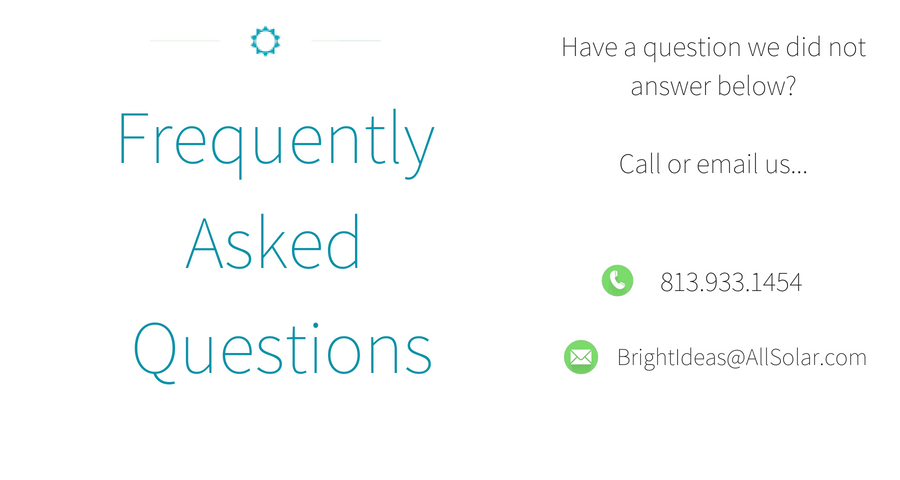
How does a solar energy system work?
Photovoltaic (PV) cells convert sunlight to direct current (DC) electricity.
The inverter converts DC into alternating current (AC) electricity.
The electrical panel sends power to your lights and appliances.
The utility meter measures the energy you draw and feedback to the grid.
Will there be a difference in how my lights or appliances work on solar power?
Solar electricity is exactly like the power you traditionally receive, so you’ll see no difference in how all your electricity runs.
If my home is in a primarily shaded area, will it still qualify for a solar energy system?
That depends. Shade can be an issue for PV panels if they’re located on a shaded area, causing the amount of solar energy to decrease.
If we assess your home and find it has too much shade, we can use microinventers to connect the panels together in pieces, and not as a whole, so those pieces that are shaded will not affect the entire PV system.
What about inspections and permits?
The All Solar Power team will work with your city and your busy schedule to arrange an inspection.
Will PV panels work on cloudy or rainy days?
Yes, they will, but will output about half of the electricity than on a clear, sunny day. Although, if your panels are tied to a grid, which more are, you’ll use the remaining half of electricity by pulling from the grid on overcast or rainy days.
How long will an installation take?
Depending on the solar solution, simple solar pool heaters take approx 4-6 hours. More time-consuming solution such as PV panels take approve one day.
Can a solar system increase the value of my home?
It certainly can. Studies have shown homes with solar systems are valued higher and sell faster than one without a system.
Are their restrictions that prohibit solar system installation?
According to the Florida Solar Rights Law, there are no codes or restrictions that will hamper the installation of your solar system. In the event there are covenants, our team works with organizations to help resolve any issues.
Will severe weather conditions damage my solar system?
We live in Florida and weather goes from balmy to stormy very quickly. All Solar Power systems can handle tough condition, but in the event of a hurricane, hail or other extreme weather, most homeowner’s insurance will cover the damage and cost of the system.
How will the solar system be attached to my roof? Will my roof be damaged or leak?
Because PV panels need lots of sun, a secure area, and virtually no shade, the roof is the perfect part of the house to place them. Our solar installation professionals attach large lag bolts to the structure with a metal flashing called Fastjack that is used in solar panel installs.
Since the panels are attached to the rafters, therefore, there’s no concern for damage or leaks to your roof.
